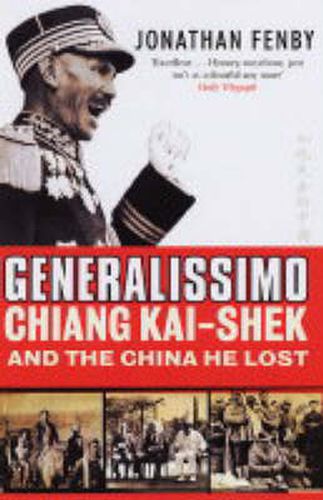Readings Newsletter
Become a Readings Member to make your shopping experience even easier.
Sign in or sign up for free!
You’re not far away from qualifying for FREE standard shipping within Australia
You’ve qualified for FREE standard shipping within Australia
The cart is loading…






Chiang Kai-shek was the man who lost China to the Communists. As leader of the nationalist movement, the Kuomintang, Chiang established himself as head of the government in Nanking in 1928. Yet although he laid claim to power throughout the 1930s and was the only Chinese figure of sufficient stature to attend a conference with Churchill and Roosevelt during the Second World War, his desire for unity was always thwarted by threats on two fronts. Between them, the Japanese and the Communists succeeded in undermining Chiang’s power-plays, and after Hiroshima it was Mao Zedong who ended up victorious. Brilliantly re-creating pre-Communist China in all its colour, danger and complexity, Jonathan Fenby’s magisterial survey of this brave but unfulfilled life is destined to become the definitive account in the English language.
$9.00 standard shipping within Australia
FREE standard shipping within Australia for orders over $100.00
Express & International shipping calculated at checkout
Chiang Kai-shek was the man who lost China to the Communists. As leader of the nationalist movement, the Kuomintang, Chiang established himself as head of the government in Nanking in 1928. Yet although he laid claim to power throughout the 1930s and was the only Chinese figure of sufficient stature to attend a conference with Churchill and Roosevelt during the Second World War, his desire for unity was always thwarted by threats on two fronts. Between them, the Japanese and the Communists succeeded in undermining Chiang’s power-plays, and after Hiroshima it was Mao Zedong who ended up victorious. Brilliantly re-creating pre-Communist China in all its colour, danger and complexity, Jonathan Fenby’s magisterial survey of this brave but unfulfilled life is destined to become the definitive account in the English language.